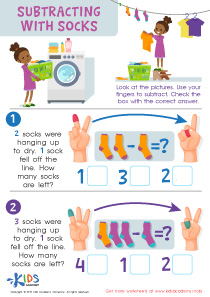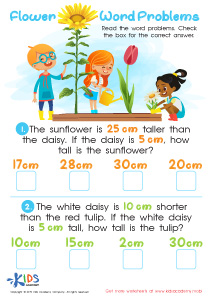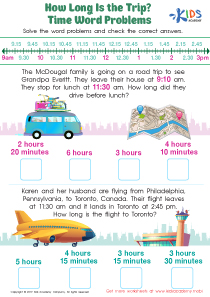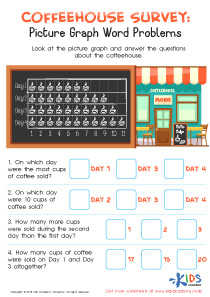Problem-Solving Skills Easy Addition and Subtraction Word Problems Worksheets for Ages 3-8
7 filtered results
-
From - To
Unlock your child's potential with our Problem-Solving Skills Easy Addition and Subtraction Word Problems Worksheets, designed specifically for ages 3-8. Expertly crafted to foster critical thinking, these engaging exercises make math fun and accessible. Each worksheet offers age-appropriate word problems that seamlessly combine learning and play. Your children will enhance their addition and subtraction abilities while developing vital problem-solving skills. Perfect for early learners, these worksheets provide a strong mathematical foundation and boost confidence. Discover a world where math challenges turn into exciting adventures, making education an enjoyable journey from the very start.
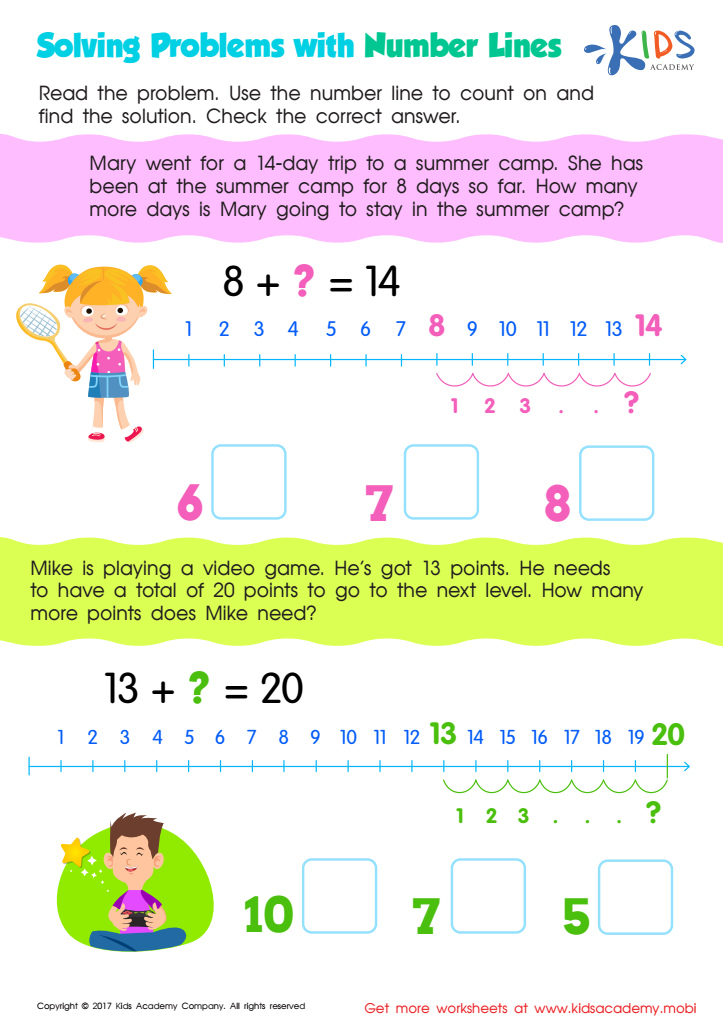

Solving Problems: Number Lines Worksheet
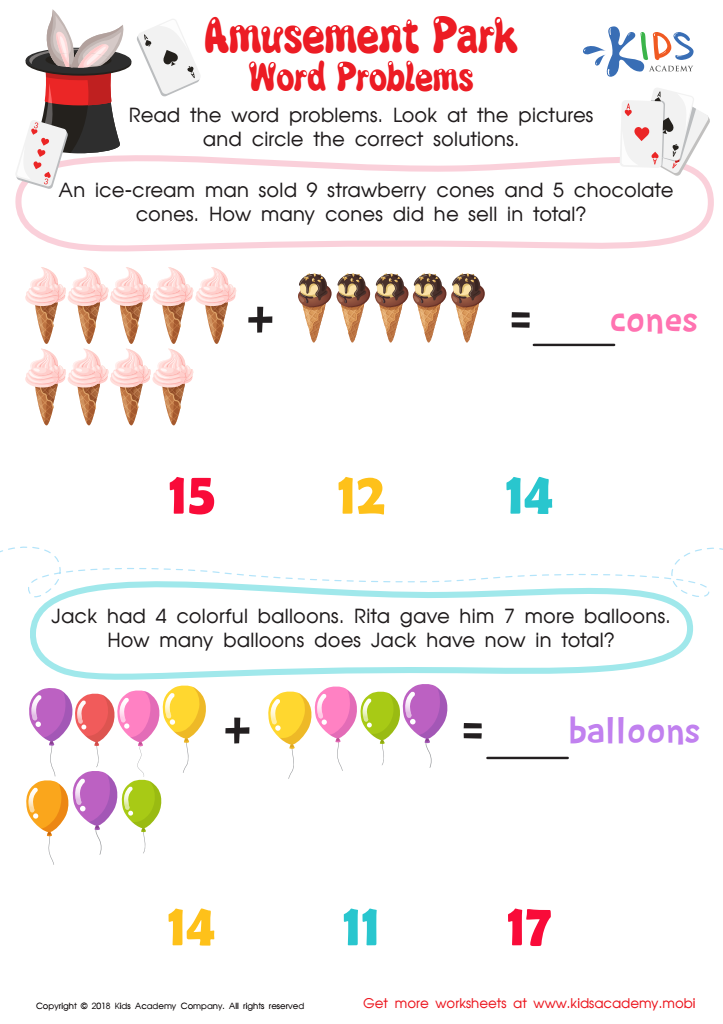

Amusement Park Word Problems Worksheet
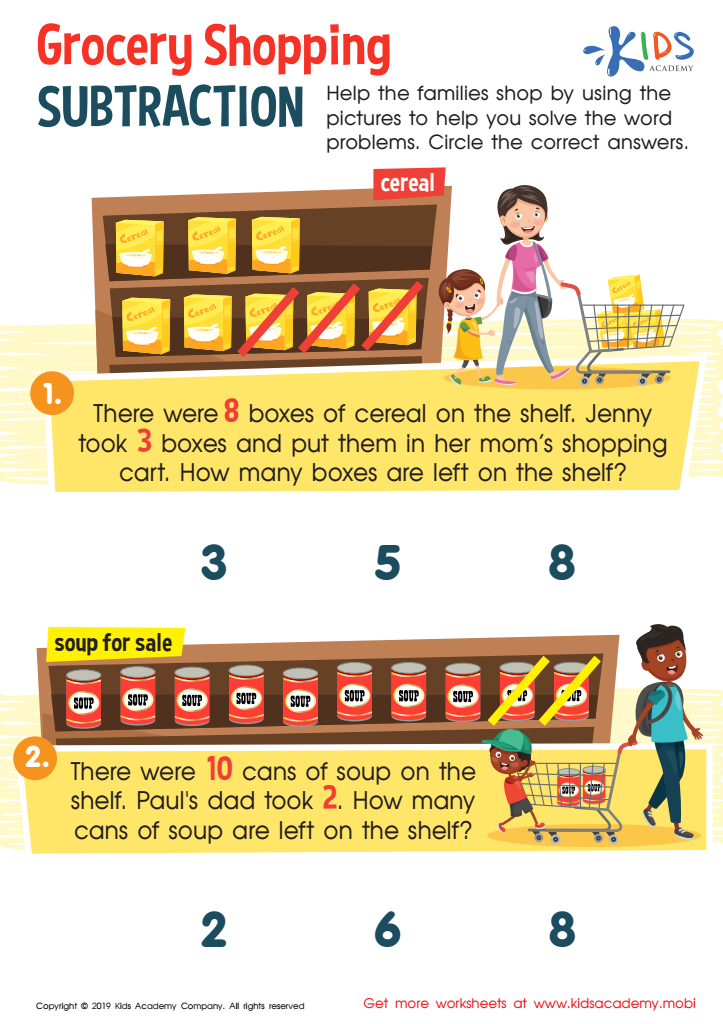

Grocery Shopping Subtraction Worksheet
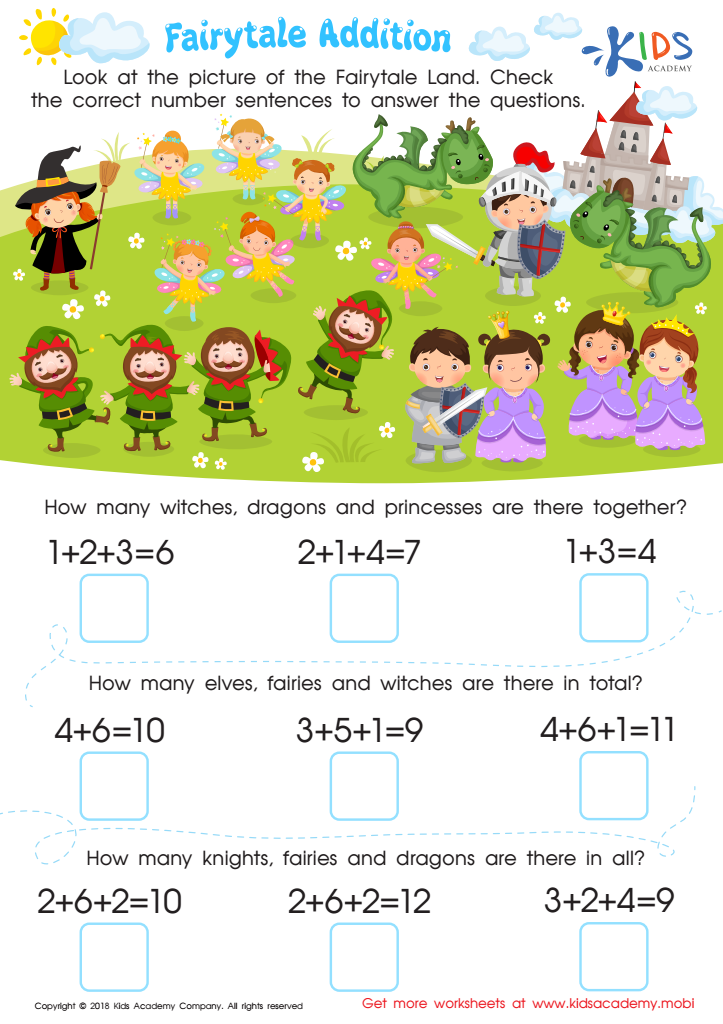

Fairytale Addition Worksheet
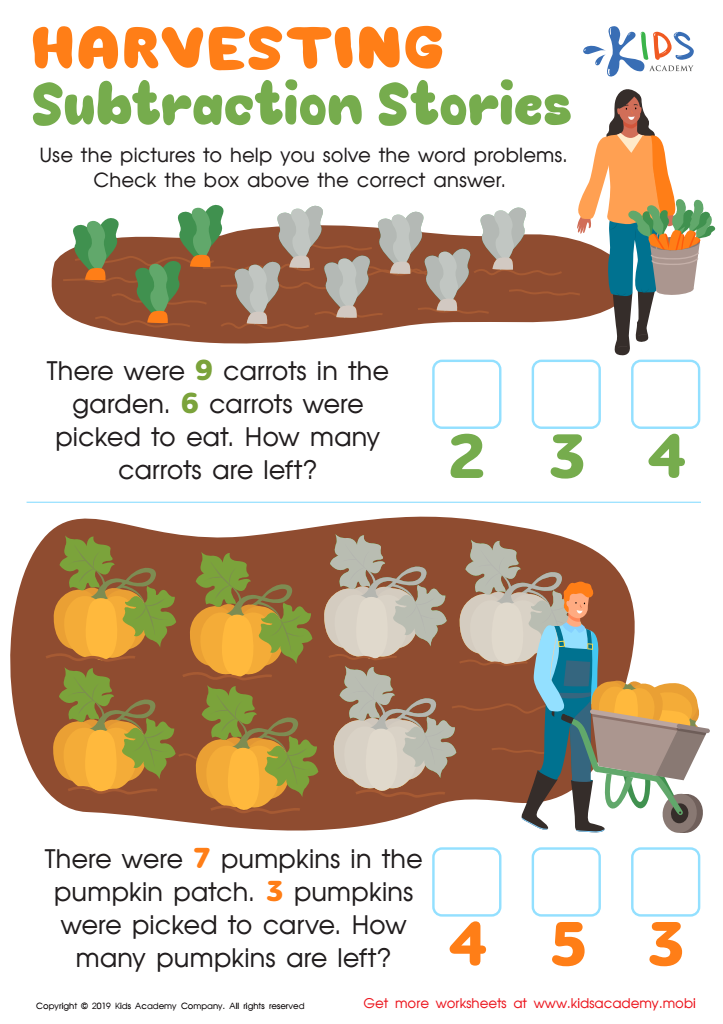

Harvesting Subtraction Stories Worksheet
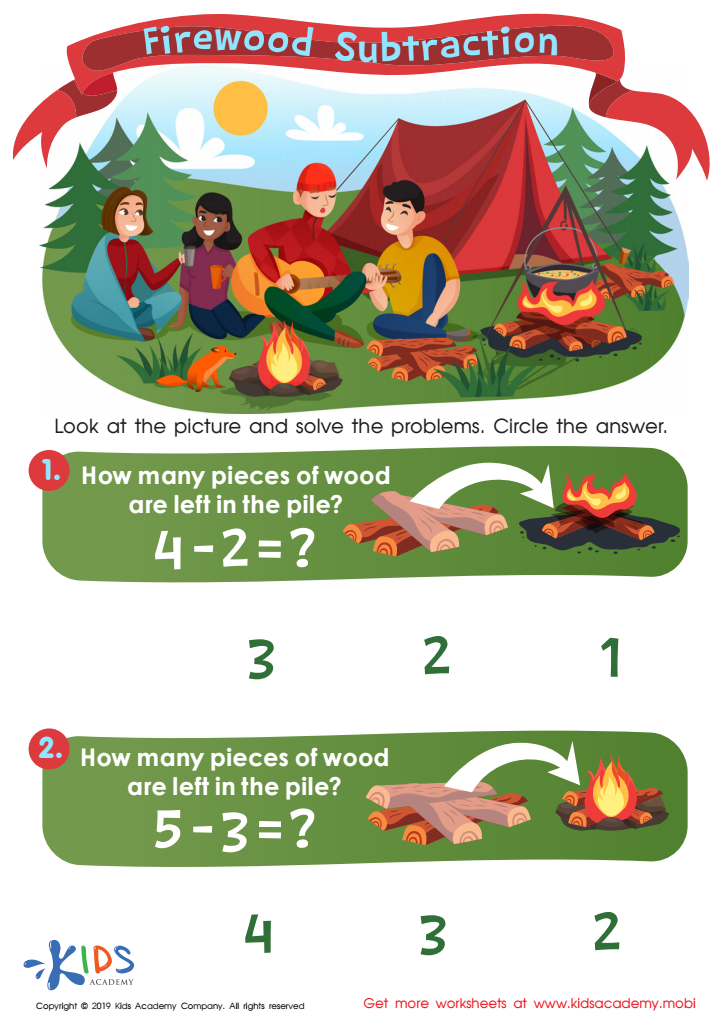

Firewood Subtraction Worksheet
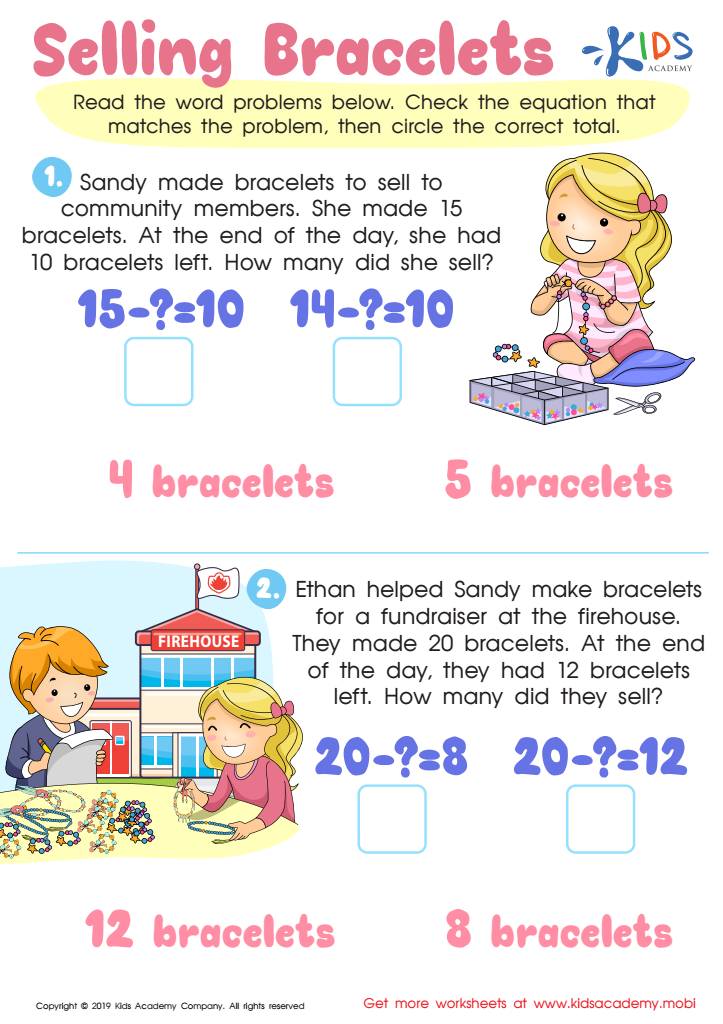

Selling the Bracelets Worksheet
Parents and teachers should prioritize problem-solving skills, particularly easy addition and subtraction word problems, for children aged 3-8 because these skills form the foundation for critical thinking and analytical ability. Engaging in simple mathematical word problems helps children understand and translate real-life situations into mathematical concepts. This early exposure cultivates numerical literacy and enhances cognitive development.
Firstly, these activities improve children's ability to comprehend and follow directions, enhancing language and reading skills. When children decode word problems, they practice reading comprehension, which is essential for all academic subjects. Secondly, early problem-solving activities help develop a child’s perseverance and resilience. Children learn to approach challenges methodically, boosting their confidence and reducing math-related anxiety.
Furthermore, addition and subtraction are fundamental operations in mathematics. Mastering these basics through word problems enables children to grasp more complex mathematical principles in the future with greater ease. These skills also have practical life applications, such as understanding money, telling time, and measuring quantities.
In essence, fostering problem-solving abilities through basic word problems is a stepping stone for young learners that can shape their academic trajectory and everyday decision-making. Thus, integrating these skills into early education sets the stage for lifelong learning and problem-solving capabilities.
 Assign to My Students
Assign to My Students








